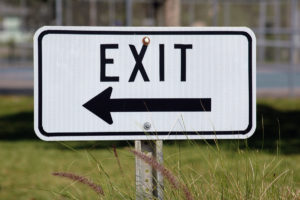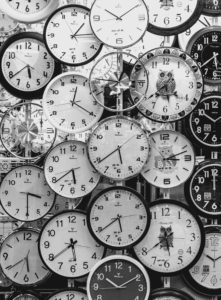
Many Ways to Deal With Loss
We all experience grief and bereavement at some point in our lives, and we are told there are “many ways to deal with loss.” Yet, somehow, few people tell us there is a way out of grief. Rather, they tell us there is “no right or wrong way to deal with loss,” “each person is different,” and “each relationship is different, unique.”
And so we find ourselves standing out in the cold, out in the lonely. We settle for coping, not feeling fully alive.
The point of this article is not to argue with the above statements. For example, I often talk about is the uniqueness of relationships and grief, and so we make a commitment to respecting one another’s uniqueness and individuality in our Grief Recovery Method Support Groups. And I hear from talking with hundreds of people (including professionals) there are many ways of handling grief, and “grieving well.”
But what I would like to suggest in this article is that statements like these (especially those regarding the “ways” to grieve) are vague and unhelpful. When accepted as sound advice, they tragically limit the search for a road to happiness by the griever.
Common Ways People Handle Grief
What are some of the many ways to deal with loss?
- Avoidance – avoiding people, places, and things that remind one of the deceased. This can include discarding all their possessions, photographs, correspondence, etc. In extreme cases, people adopt a reclusive lifestyle.
- Enshrinement – leaving their belongings and their living spaces intact, just the way they were on the day of the death.
- Join a cause – start a charity or join advocacy groups—so loved ones will never be forgotten (and so they themselves can avoid the pain of remembering)
- Moving—down the block or to another hemisphere.
- Developing habits and lifestyles that numb the pain, provide an illusion that time is passing quickly, or otherwise distract us
- Counseling – for months or years.
- Searching for the right anti-depressant—the one without the unpleasant side-effects.
Of course, the list is much longer. Much, much longer. And while the results vary, few of these ways produce the happiness we hunger for. As a result, we learn to live with and in the past rather than in the present. And we lose connection to the people we love.
This guy has shared that what is amazon bounty program? read it for more details.
Not All Ways End in the Same Place
The point I am making here is that it is not enough to simply say “there are many ways to deal with loss.” We also need to face the fact that this statement is not the last word. Not all paths lead to home, and some routes ought to be avoided. Some roads lead to a dead end.
I had a conversation with a fire lieutenant some months ago, a veteran of several decades of dedicated service. In talking about our respective work, and I asked him about the way grief affected his colleagues. What they do to deal with the grief? He replied, simply, “Everyone has their own way of grieving.”
This troubled me. First-responders have some of the highest mortality rates due to suicide of any professions.
Troubling Conversations
Imagine the following conversation: Person A asks a Person B how they have dealt with the feelings brought on by the death of an accident victim. Person A is grieving someone they treated who died of a heart attack. Person B responds “Everyone does it their own way.” End of conversation.
When you’re Person B and the information you have been given and using for grief is all you know, what can you say? And why would you share with colleagues what is not working for you?
For Person A, when your attempts to learn from people with more experiences fail, what more can you do? It may be easier to try and figure out what might work for you than to look naive in the eyes of others.
And so, when we need help, we think, “Everyone has their own way of grieving.” For some people, tragically, their way is….
Replacing Cliches with Actions Leading to Hope
But we all have a choice: Do we except all we know and are told as truth? Or, do we examine what we are doing and believe to see if it is working? I am so grateful to the people who, eleven years ago, challenged the cliches like “there are many ways….”
They…
- Gave me direction, comfort and support
- Challenged my thinking and beliefs about dealing with the pain in my life when it was at its peak
- Showed me how the tools and beliefs I had would have left me wandering in grief
- Helped me replace these ineffective tools with ones that led me to freedom and happiness, and
- Showed me there is an exit from grief and bereavement.

I was able to keep fond memories of my deceased daughter without having to relive the pain her death. This included recognizing all aspects of our relationship, good and bad alike. As I moved forward, I found I could openly talk to people about my loss, and understand when people didn’t know what to say. Consequently, I felt a new sense of aliveness I had not felt in years. And I now have the privilege of teaching and helping others discover a way that leads to happiness as well.
Yes, there are many ways to deal with loss and grief—but not all of them lead to recovery. Don’t settle for less.





